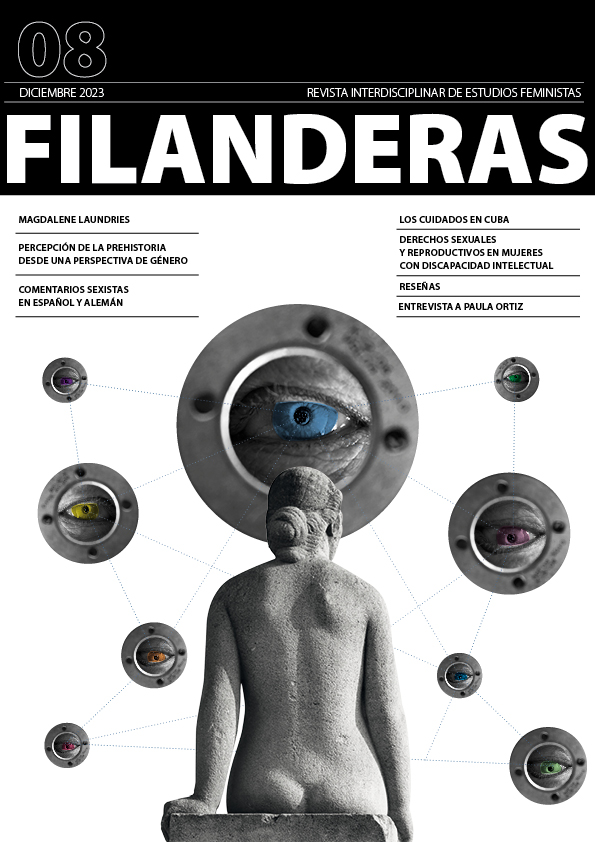Confronting Sexist Comments: Verbal (Im)Politeness in Spanish and German
DOI:
https://doi.org/10.26754/ojs_filanderas/fil.2023810002Keywords:
Gender, Pragmatics, Impoliteness, Intercultural, Spanish-GermanAbstract
This paper adopts a pragmatic perspective to examine the verbal responses to micro-sexist comments. The objective is to define and analyse the speech act «confronting sexist comments», focusing on the facework used among peers. The study was carried out with a Discourse Completion Task at the campus of the University Pablo de Olavide in Seville, involving Spanish students as well as German Erasmus students. The aim was to investigate how strategies of verbal (im)politeness, as defined by Culpeper, Bousfield, and Wichmann (2003) and Bousfield (2008), vary based on the Spanish or German linguaculture and the gender of the speakers. Intercultural studies (Siebold & Busch, 2015) predict that Spanish speakers would utilise positive facework more frequently than German speakers, while feminist studies (Mills, 2005) suggest that women are expected to display more polite linguistic behaviour than men. The results indicate that negative assessments of sexist comments were more prevalent in Spanish culture and among female speakers, whereas German and male speakers more frequently avoided reacting to sexist comments. Furthermore, the findings suggest that «confronting sexist comments» may be a speech act where the gender bias is more significant than intercultural differences between Spanish and German students.
Display downloads
Downloads
Published
Issue
Section
License
Copyright (c) 2023 Elena Masarah Revuelta; Guiomar Topf Monge

This work is licensed under a Creative Commons Attribution-NonCommercial 4.0 International License.
Authors who publish in this journal agree to the following terms:
They retain authorship rights and grant the journal the right to be the first publication of the work as well as license it under a Creative Commons Attribution-BY-NonCommercial 4.0 International that allows others to share the work without any commercial purpose and an acknowledgement of authorship of the work and initial publication in this journal. As the Creative Commons standards define, "this license enables reusers to distribute, remix, adapt, and build upon the material in any medium or format for noncommercial purposes only, and only so long as attribution is given to the creator. CC BY-NC includes the following elements:
- BY: credit must be given to the creator.
- NC: Only noncommercial uses of the work are permitted".





